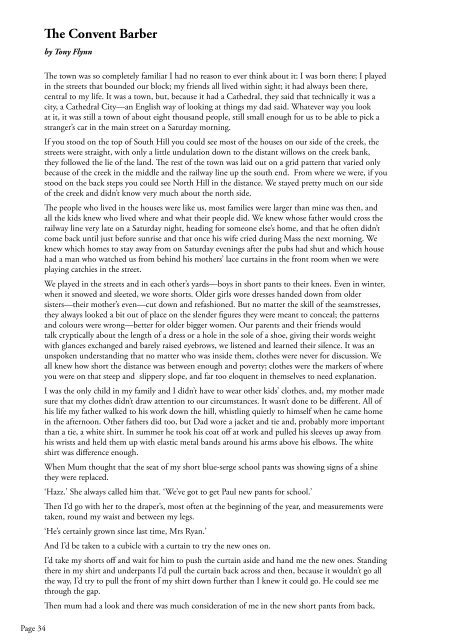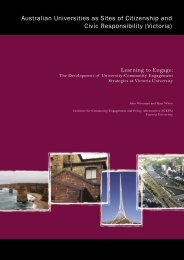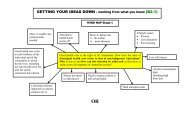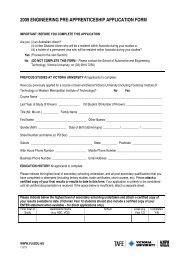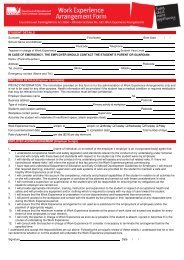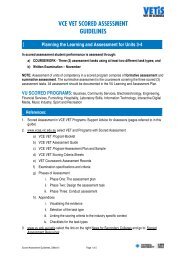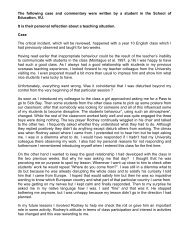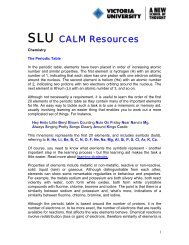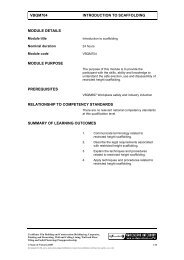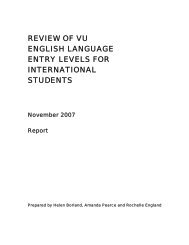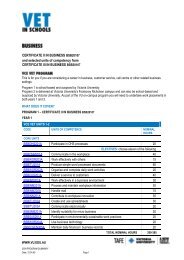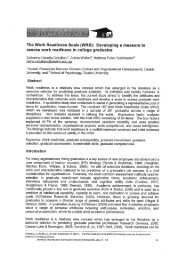Issue 6 2010 - TLS - Victoria University
Issue 6 2010 - TLS - Victoria University
Issue 6 2010 - TLS - Victoria University
You also want an ePaper? Increase the reach of your titles
YUMPU automatically turns print PDFs into web optimized ePapers that Google loves.
Page 34<br />
The Convent Barber<br />
by Tony Flynn<br />
The town was so completely familiar I had no reason to ever think about it: I was born there; I played<br />
in the streets that bounded our block; my friends all lived within sight; it had always been there,<br />
central to my life. It was a town, but, because it had a Cathedral, they said that technically it was a<br />
city, a Cathedral City—an English way of looking at things my dad said. Whatever way you look<br />
at it, it was still a town of about eight thousand people, still small enough for us to be able to pick a<br />
stranger’s car in the main street on a Saturday morning.<br />
If you stood on the top of South Hill you could see most of the houses on our side of the creek, the<br />
streets were straight, with only a little undulation down to the distant willows on the creek bank,<br />
they followed the lie of the land. The rest of the town was laid out on a grid pattern that varied only<br />
because of the creek in the middle and the railway line up the south end. From where we were, if you<br />
stood on the back steps you could see North Hill in the distance. We stayed pretty much on our side<br />
of the creek and didn’t know very much about the north side.<br />
The people who lived in the houses were like us, most families were larger than mine was then, and<br />
all the kids knew who lived where and what their people did. We knew whose father would cross the<br />
railway line very late on a Saturday night, heading for someone else’s home, and that he often didn’t<br />
come back until just before sunrise and that once his wife cried during Mass the next morning. We<br />
knew which homes to stay away from on Saturday evenings after the pubs had shut and which house<br />
had a man who watched us from behind his mothers’ lace curtains in the front room when we were<br />
playing catchies in the street.<br />
We played in the streets and in each other’s yards—boys in short pants to their knees. Even in winter,<br />
when it snowed and sleeted, we wore shorts. Older girls wore dresses handed down from older<br />
sisters—their mother’s even—cut down and refashioned. But no matter the skill of the seamstresses,<br />
they always looked a bit out of place on the slender figures they were meant to conceal; the patterns<br />
and colours were wrong—better for older bigger women. Our parents and their friends would<br />
talk cryptically about the length of a dress or a hole in the sole of a shoe, giving their words weight<br />
with glances exchanged and barely raised eyebrows, we listened and learned their silence. It was an<br />
unspoken understanding that no matter who was inside them, clothes were never for discussion. We<br />
all knew how short the distance was between enough and poverty; clothes were the markers of where<br />
you were on that steep and slippery slope, and far too eloquent in themselves to need explanation.<br />
I was the only child in my family and I didn’t have to wear other kids’ clothes, and, my mother made<br />
sure that my clothes didn’t draw attention to our circumstances. It wasn’t done to be different. All of<br />
his life my father walked to his work down the hill, whistling quietly to himself when he came home<br />
in the afternoon. Other fathers did too, but Dad wore a jacket and tie and, probably more important<br />
than a tie, a white shirt. In summer he took his coat off at work and pulled his sleeves up away from<br />
his wrists and held them up with elastic metal bands around his arms above his elbows. The white<br />
shirt was difference enough.<br />
When Mum thought that the seat of my short blue-serge school pants was showing signs of a shine<br />
they were replaced.<br />
‘Hazz.’ She always called him that. ‘We’ve got to get Paul new pants for school.’<br />
Then I’d go with her to the draper’s, most often at the beginning of the year, and measurements were<br />
taken, round my waist and between my legs.<br />
‘He’s certainly grown since last time, Mrs Ryan.’<br />
And I’d be taken to a cubicle with a curtain to try the new ones on.<br />
I’d take my shorts off and wait for him to push the curtain aside and hand me the new ones. Standing<br />
there in my shirt and underpants I’d pull the curtain back across and then, because it wouldn’t go all<br />
the way, I’d try to pull the front of my shirt down further than I knew it could go. He could see me<br />
through the gap.<br />
Then mum had a look and there was much consideration of me in the new short pants from back,


